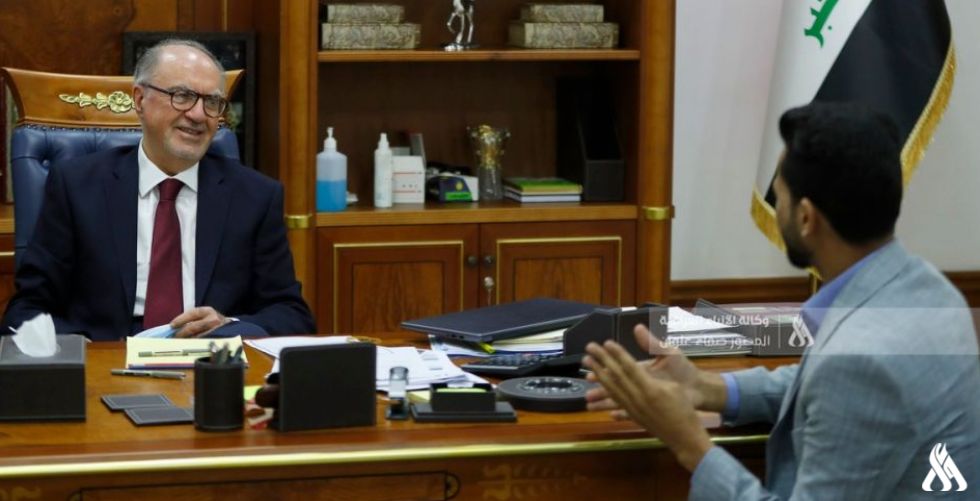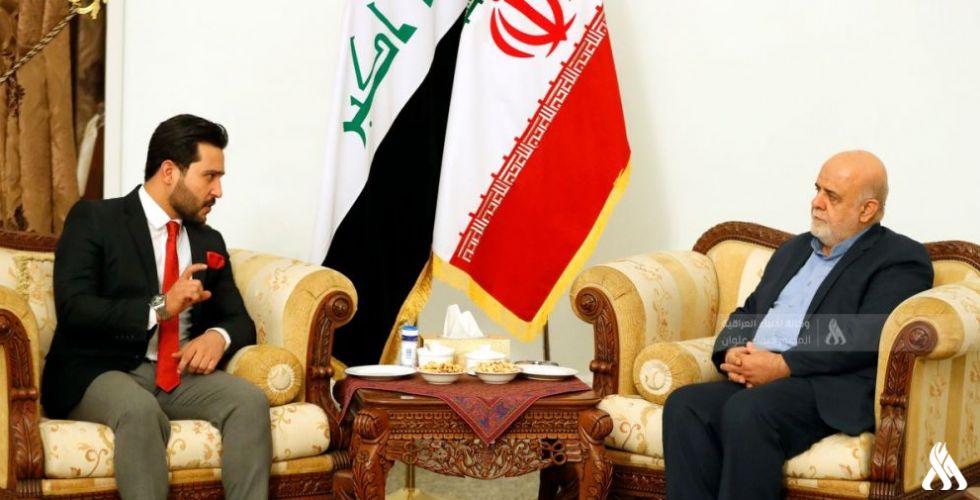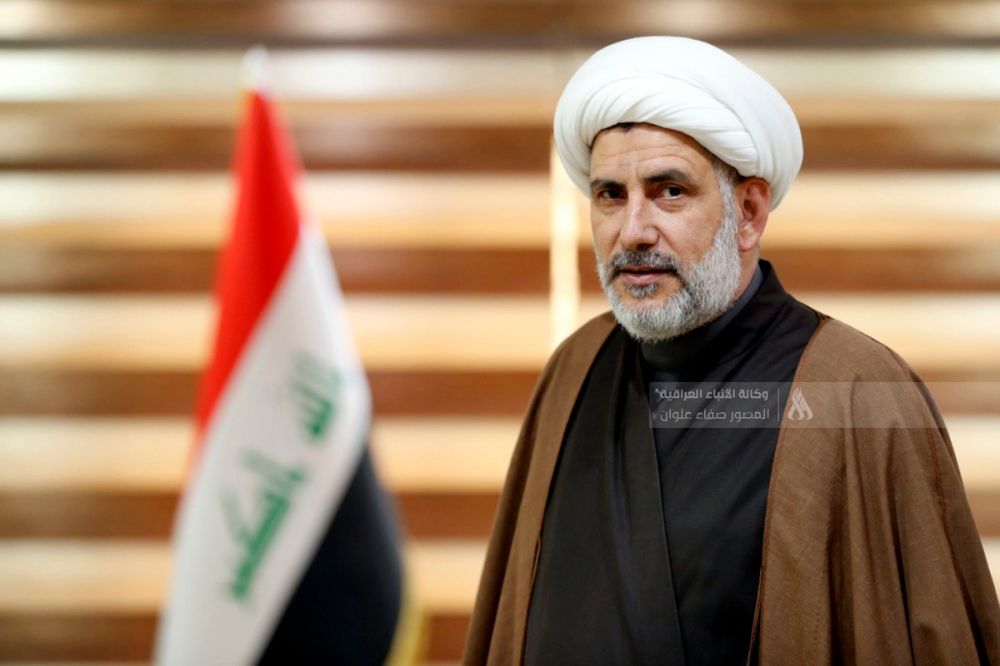
Al-Kadhimi advisor: Borrowing alternatives to face volatility in oil markets

- 11-08-2021, 20:03
INA – Baghdad
Financial advisor to the Prime Minister, Mazhir Muhammad Salih, identified borrowing alternatives from the international capital markets to face the risks of the volatility of the oil markets.
Salih presented two methods to achieve an increase in the Iraqi per capital income, as he confirmed the 70 trillion dinars outside the banking system.
"Iraq does not have an opportunity to avoid direct borrowing from global capital markets or international financial organizations to face the risks of volatility in oil markets and a decline in oil rents, except by taking two ways; the first is to find independent internal financial leverages that maximize non-oil revenues represented mainly by taxes and fees, by expanding the tax base, which is at the narrowest point in Iraq's financial history due to the large number of evaders,” said Salih in a statement to the Iraqi News Agency (INA).
He added, "Such updates in financial sustainability outside the oil rent and its external risks require to help increase per capital income; firstly, a broader growth in non-oil local production and secondly, an increase in operating rates, which helps to raise income continuously, and this is one of the financial tributaries that increase the internal financing opportunities in the general budget,”
"The second way to avoid borrowing is not to neglect the need to move towards benefiting from the economic surplus in the private sector (savings), which requires, via joint financing between the state and the private sector, the activation of the principles of partnership as an important means in achieving the policy of self-reliance, especially in the field of joint investment spending in financing projects and maximizing the production function,” he clarified.
Salih pointed out that direct borrowing and with attractive financial instruments to attract the public's financial surpluses directly towards the general budget requires the issuance of attractive financial instruments in which “the public invests its money and with appropriate interest or returns, such as national bonds, for example, and consider it an important alternative to external borrowing if the sincere intention is held and the correct institutional mechanisms for such developments are available in the national financial market, which will become a supportive force for fiscal policy,”
He went on explaining that “for example, the public retains a cash mass of more than 70 trillion dinars of cash issued from it as monetary wealth outside the banking system at a rate that is still no less than 88% in the form of liquid cash balances hoarded outside the banking system,”
“At the same time, this matter is a huge leakage that hinders the role of the cash surplus in completing the income cycle by converting savings into productive investments that serve growth in the national economy,"
“There must be a birth of an attractive voluntary financial market for the circulation of government bonds with interest, returns and privileges for investors with its tools, including the right to liquidate it and transfer it to cash when needed, and consider it means of payment as a guarantee of the highest class,” he pointed out.
Salih included, "in this way, the financial market will become one of the internal tributaries of public finances that enhance financial sustainability and gradually develop it within the sustainable development of the country,"
Al-Sudani Meets the Serbian Ambassador to Iraq
- politics
- 02:00
Al-Sistani: Sunday, is the first day of of Ramadan
- Local
- 25/02/28
Oil companies to meet with KRG oil companies next Tuesday
- Economy
- 25/03/01












